#chinese eunuchs castration
Text
38 rare pictures of eunuchs during the Qing Dynasty
New Post has been published on https://china-underground.com/2012/10/22/38-rare-pictures-of-eunuchs-during-qing-dinasty/
38 rare pictures of eunuchs during the Qing Dynasty
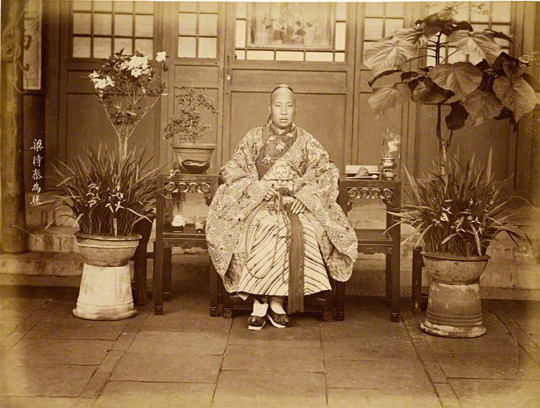
A eunuch (太監, Taijian) is a man who has been castrated in his early life for this change to have major hormonal consequences.
Related articles: how to make a eunuch in ancient China, Amazing old restored photos of China, images of the Boxer prisoners, pictures of the Xinhai Revolution, the first Sino-Japanese war prints
They have performed a wide variety of functions in many cultures: treble singers, courtiers, domestics, religious specialists, government officials, and harem servants.
Records of eunuchs in China date to the Shang dynasty, when the Shang kings castrated prisoners of war.
In China, castration included the removal of the penis as well as the testicles.
Both organs were cut off with a knife at the same time.
youtube

From ancient times until the Sui Dynasty, castration was both a traditional punishment and a means of gaining employment in the Imperial service
Men sentenced to castration were turned into eunuch slaves of the Qin dynasty state to perform forced labor for projects such as the Terracotta Army.
From ancient times until the Sui Dynasty, castration was both a traditional punishment (one of the Five Punishments) and a means of gaining employment in the Imperial service.
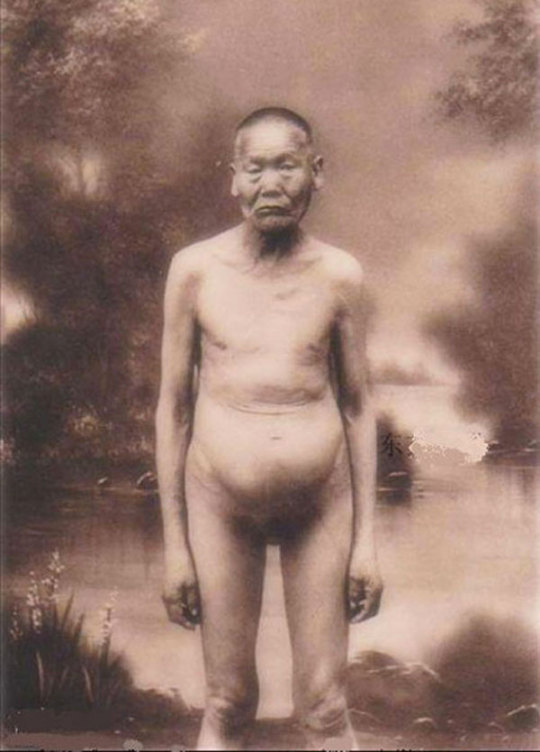
In China, castration included the removal of the penis as well as the testicles. Both organs were cut off with a knife at the same time.
At the end of the Ming Dynasty, there were about 70,000 eunuchs employed by the emperor, with some serving inside the Imperial Palace.
Certain eunuchs gained immense power that occasionally superseded that of even the Grand Secretaries, like Zheng He, who lived during the Ming Dynasty.
When the Ming army finally captured Yunnan from Mongols in 1382, thousands of prisoners were killed and, according to the custom in times of war, their young sons – including Zheng He – were castrated. (Wikipedia)
Certain eunuchs gained immense power that occasionally superseded that of even the Grand Secretaries, like Zheng He, who lived during the Ming Dynasty.
Images of Chinese eunuchs

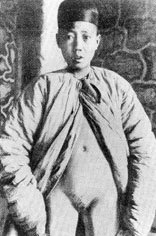
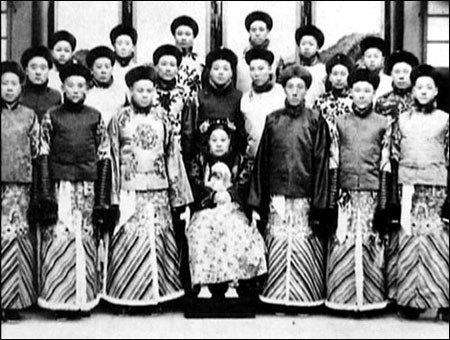
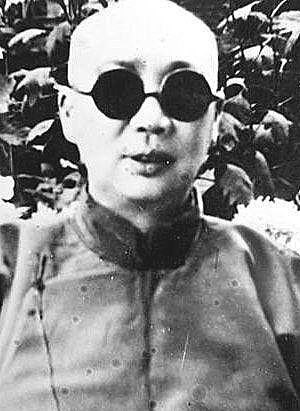
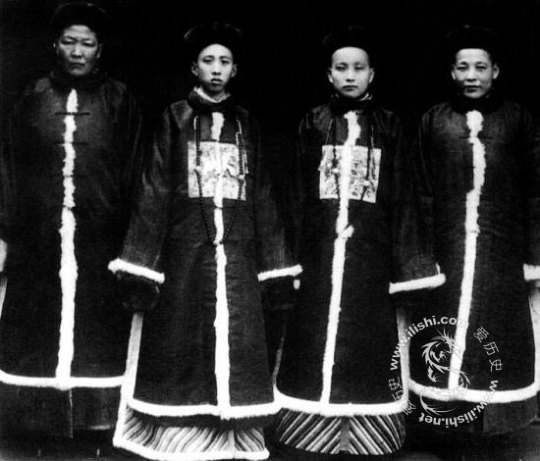
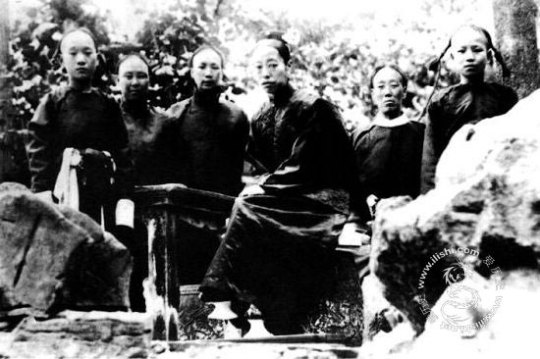




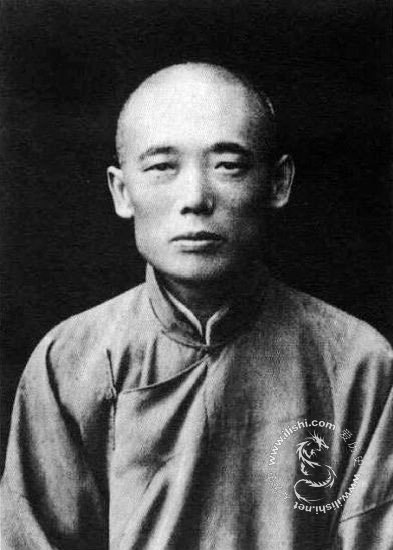
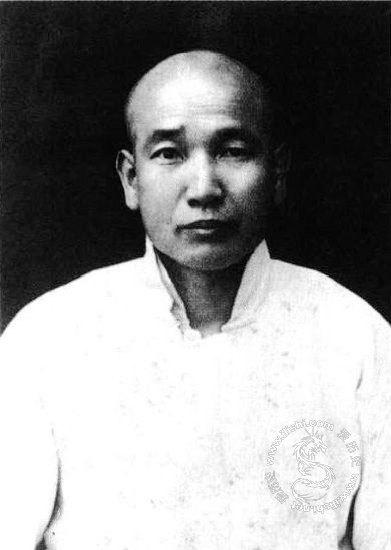
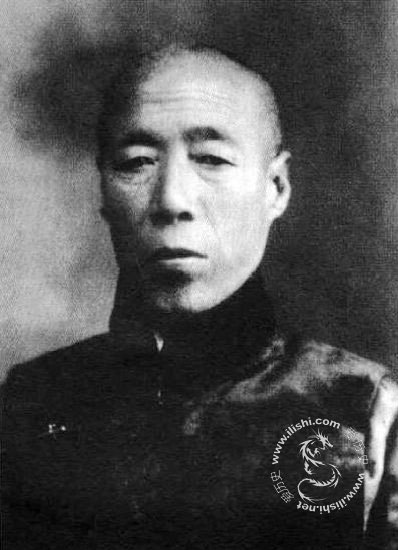
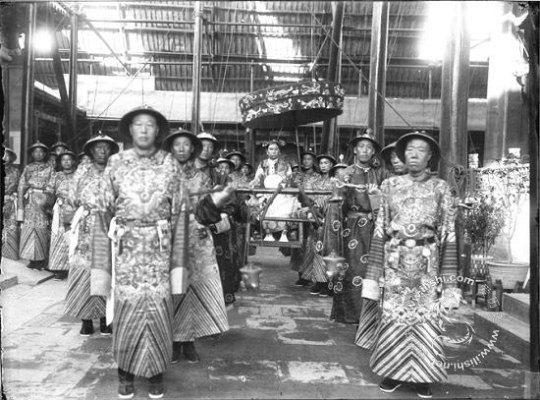

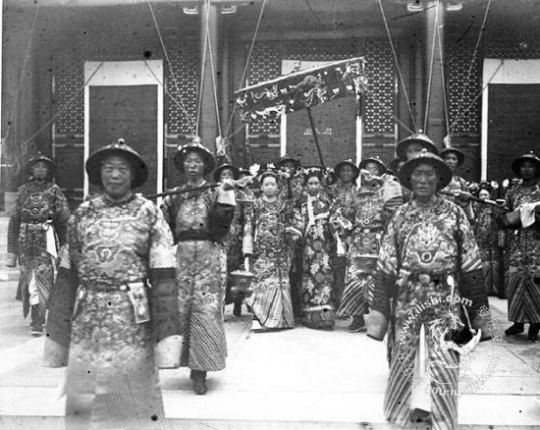

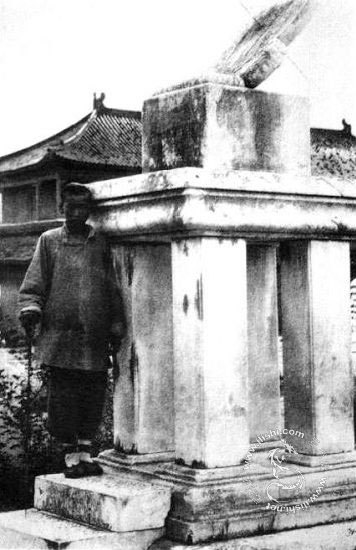
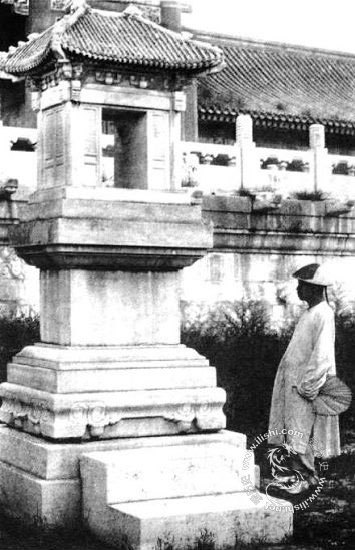
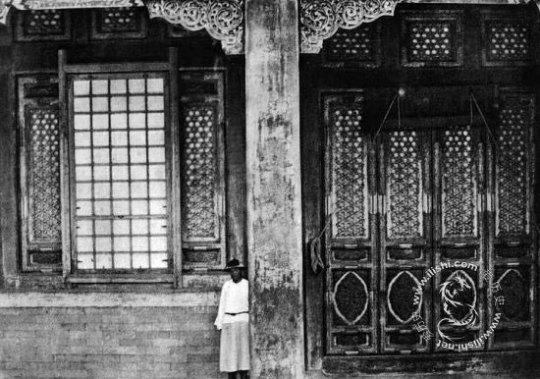



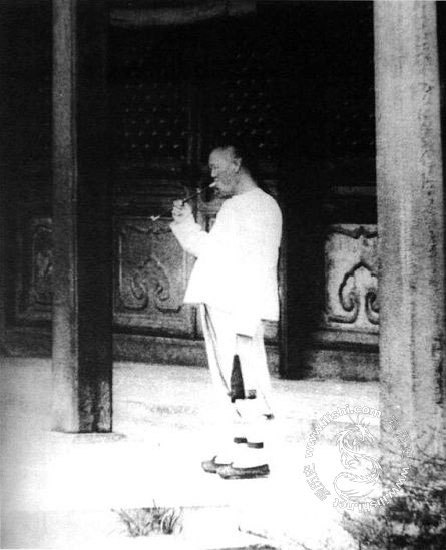

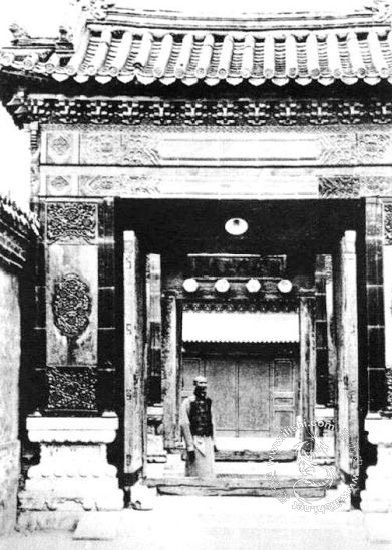

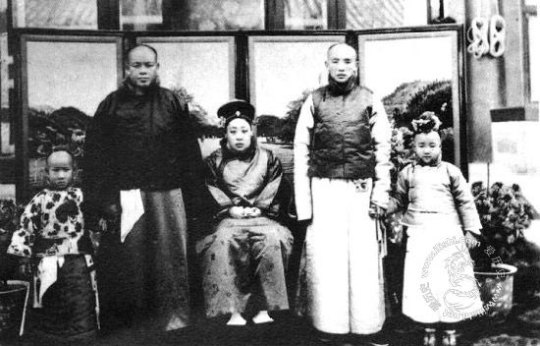
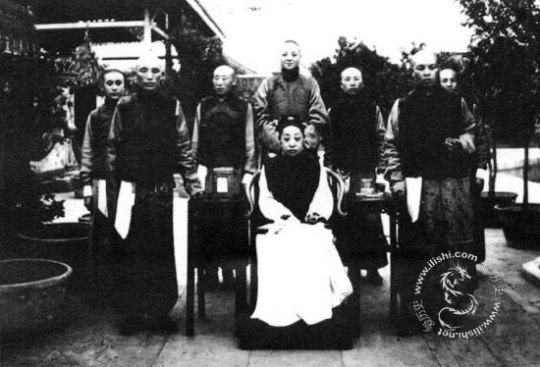
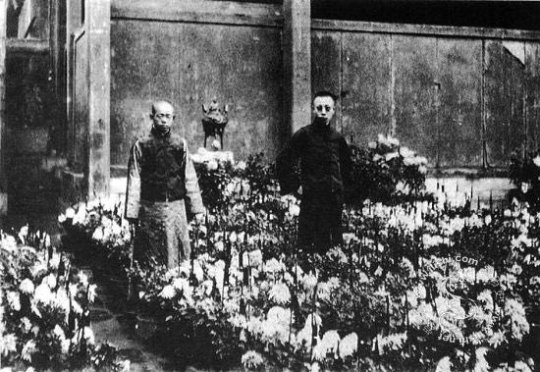
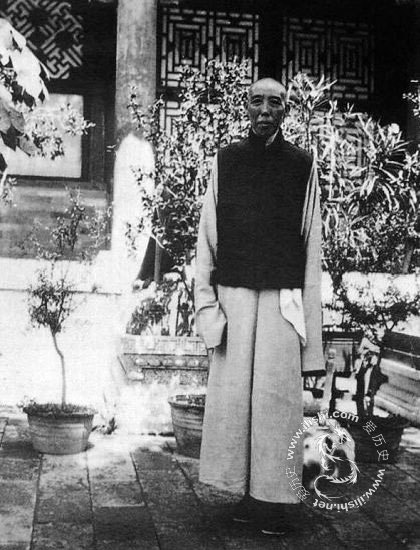

Sources
via Eunuchi
http://www.getty.edu/research/exhibitions_events/exhibitions/brush_shutter/essential_china.html
http://www.usrf.org/news/010308-eunuchs_china.html
http://gb.cri.cn/15884/2007/02/01/
http://taijian.baike.com/article-80849.html
http://ilishi.blog.sohu.com/118388051.html
Wikipedia
Topic: eunuch pics, eunuch photos, castration eunuch, castration pictures, castration photo, castration pics, Chinese eunuchs, what does a eunuch look like
#AmazingHistoricalPhotos, #ChineseCastration, #ChineseEunuch, #ChineseEunuchs, #ChineseEunuchsCastration, #Eunuchs, #FivePunishments, #HistoricalPhotos, #Images, #MingDynasty, #OldHistoricalPhotos, #OldPictures, #QingDinasty, #RestoringOldPhotographs, #SuiDynasty, #ZhengHe
#amazing historical photos#chinese castration#chinese eunuch#chinese eunuchs#chinese eunuchs castration#eunuchs#Five Punishments#historical photos#images#Ming Dynasty#old historical photos#old pictures#qing dinasty#restoring old photographs#Sui Dynasty#Zheng He
4 notes
·
View notes
Text



eunuch button collection
edit: I need to make this abundantly clear this is about HISTORICAL CHINESE COURT EUNUCHS and NOT castration fetishes
edit again: nsfw blogs fuck off do not touch
#flashing gif warning#flashing warning#EUNUCHS#88x31#im crying#this is about historical chinese court eunuchs#web stuff#neocities
45 notes
·
View notes
Text
The Stuff I Read in August 2023
Stuff I Extra Liked Is Bold
Books
Raven Stratagem, Yoon Ha Lee (2017)
Reconsidering Reparations, Olúfẹ́mi O. Táíwò (2022)
The Mirror of My Heart: A Thousand Years of Persian Poetry by Women, trans. Dick Davis (2019)
The Origins of Unfairness, Cailin O'Connor (2019)
Short Fiction
the prisoner, ignatz
The Unwanted Guest, Tamsyn Muir
She Loves to Cook, and She Loves to Eat, Sakaomi Yuzaki
Still Sick, Akashi
Born Again Bunny, ignatz
A Museum of Dubious Splendors, Studio Oleomingus
In the Pause Between the Ringing, Studio Oleomingus
The Indifferent Wonder of an Edible Place, Studio Oleomingus
Game Theory
The Bargaining Problem, John Nash (1950)
Two Person Cooperative Games, John Nash (1953)
Perfect Equilibrium in a Bargaining Model, Ariel Rubinstein (1982)
Marriage and household decision making: A bargaining analysis, Marilyn Manser and Murray Brown (1980)
Evolutionary Game Theory
The theory of games and the evolution of animal conflicts, John Maynard Smith (1974)
The Logic of Animal Conflict, John Maynard Smith and George R. Price (1973)
Why imitate, and if so, how? A boundedly rational approach to multi-armed bandits, Karl Schlag (1996)
On the Stability of Racial Capitalism, Liam Kofi Bright, Nathan Gabriel, Cailin O'Connor, Olúfẹ́mi O. Táíwò
Fairness and Signaling in Bargaining Games, Mihaela Popa-Wyatt, Roland Mühlenbernd Jeremy L. Wyatt
Inequality and Inequity in the Emergence of Conventions, Calvin Cochran and Cailin O'Connor (2019)
Power by Association, Travis LaCrois and Cailin O'Connor (2020)
Why Natural Social Contracts are not Fair, Cailin O'Connor (2022)
How to Put the Cart Behind the Horse in the Cultural Evolution of Gender, Daniel Saunders (2022)
Division of Labor, Economic Specialization, and the Evolution of Social Stratification, Joseph Heinrich and Robert Boyd (2008)
On the emergence of minority disadvantage: testing the cultural Red King hypothesis, Aydin Mohseni, Cailin O'Connor, and Hannah Rubin (2021)
Philosophy (broadly construed)
"But What Are You, Really?" The Metaphysics of Race, Charles W. Mills (1998)
Heterosexualism and the Colonial/Modern Gender System, Maria Lugones
Extracted Speech, Rachel Ann McKinney (2016)
Nozick's Entitlement Theory of Justice, Kenneth J. Arrow (1978)
Nietzsche, the Chinese Worker's Friend, Ishay Landa (1999)
Measuring Conventionality, Cailin O'Connor (2020)
Other
Who Was Barbie? various @ nplusonemag
Lockhart's Lament, Paul Lockhart
Female Hunters of the Early Americas, Randall Haas et al.
We Have No Moat, and Neither Does OpenAI, anonymous
The Bitter Lesson, Rich Sutton
The Evolution of Individual and Cultural Variation in Social Learning, Alex Mesoudi et al.
Medieval Arab Lesbians and Lesbian-Like Women, Sahar Amer (2009)
"My son was castrated as a result of a medical error. Is it OK to raise him as a eunuch?" Thomas W. Johnson and Richard J. Wassersug (2021)
#reading prog#as you can tell most of the evo game theory is complete contemporary crap#everyone thinks they're a psychohistorian
9 notes
·
View notes
Note
Sorry not sure if it's okay to ask this, but do you have any reccs for fantasy or sci-fi books, other than the ones with Alina and the Darkling I mean?
It’s absolutely okay! That being said, I’m rather terrible at giving out blanket recommendations because I like to tailor to taste/what someone might be in the mood for. But here are a few things I liked in no particular order!
Book of Night by Holly Black
This is* Holly Black’s most recent, very highly anticipated release, and also her adult debut. It’s very on the radar lol but there was some negative rap surrounding it, that I actually found pretty surprising.
It’s a fairly slow building, character driven urban fantasy with a noirish tone. The premise is that the general populace has only recently learned that people’s shadows can be used to perform magic. The protagonist is a former teen-con-artist turned notorious thief in the magic world (stealing grimoires, magical artifacts, etc) who’s trying desperately to get her life in order. But then she finds herself dragged into the center of a mystery.
*was until literally two days ago, I forgot Stolen Heir exists
The Poppy War by R F Kuang
This series was probably my favorite read of 2021. It’s a sprawling fantasy drawing from Chinese history, with a protagonist loosely inspired by Mao Zedong. It’s notorious for being really dark and brutal, and it’s very well done but not a light read. That being said, I think there’s some uneven choices with the relationships development in the first book, and it has some debut clumsiness but overall it’s very good. And Kuang’s skill noticeably improves with every book.
Vassa in the Night by Sarah Porter
I read this over five years ago so I’m not entirely certain how it holds up. But I remember it as a really fun urban fairy tale, bordering on surrealism. It’s a modern retelling of Vasalisa the Beautiful where the protagonist is sent out by her stepsister to buy lightbulbs at Babs Yags’ convenience store in the middle of the night, gets accused of shoplifting, and must prove her innocence by completing three impossible tasks or get *beheaded.* It’s just really weird and really fun.
All Systems Red by Martha Wells
These are a fun set of novellas set in a cyberpunk dystopia. The protagonist “Murderbot” is a sentient android/cyborg owned by a bond company who sends it to protect contracted human research teams from potential threats. But Murderbot’s hacked itself so that it can do the bare minimum/spend the majority of its time watching television. The first book is really fast and imo the clumsiest of the bunch but it goes on to become a really interesting sci fi thriller as Murderbot embarks on a journey to unravel a corporate conspiracy and just figuring out personhood, who it is, and what it wants out of life, etc
She Who Became the Sun by Shelley Parker-Chan
Sweeping historical set in alternate china with some magical elements. It’s billed as Mulan meets the Song of Achilles and it fits that description really well! The protagonist is a peasant girl living in abject poverty who, upon her brother’s suicide, steals his identity and hopefully his fortune, because while he was foretold to be “great” her fate was to be “nothing.” And she goes from taking refuge in a monastery, becoming ordained, to eventually joining the rebel forces that end up destroying the place, all in a bid to survive and achieve this ephemeral idea of greatness.
There’s also a foil protagonist/antagonist in a eunuch military commander, who, as a child, chose castration over death when the emperor demanded the eradication of all the men in his bloodline. And then, iirc, kept him on as a ward? And his struggle with filial duty to avenge them at the cost of his own wants and personal loyalties is fascinating. Overall this book explores gender, social roles, queerness, and misogyny in really interesting ways.
Empress of Salt and Fortune by Ngi Vo
It’s been awhile since I read this one too but it’s the first in a series of novellas. It’s told through a framing device, as a story told to another character. It’s again a sort of fantasy imperial china, about a foreign empress in a very unhappy marriage, shunned by everyone at court, and her relationship with her handmaiden. And their eventual scheme to overthrow her husband. These books are very short, and told in a leisurely fable-esque way, but I enjoy them a lot.
Gideon the Ninth by Tamsyn Muir
I know this is the internet darling right now, but unfortunately it is just as good as the hype. The first book is like a space opera spin on a country house murder mystery. The protagonist, a foundling on a desolate planet, wants nothing more than to escape and make her own life, and she’s given the chance to if she pretends to be her most despised childhood enemy/ruler’s personally sworn knight essentially— they call them cavalier’s in universe— and accompanies her on an unknown trial on another planet. And then things start going very wrong.
It’s billed as lesbian necromancers in space, and like, yeah that covers it! The subsequent two books get weirder with every installment and the fourth and last book’s not out yet, but overall this is a really solid series.
The Traitor Baru Cormorant by Seth Dickinson
This one’s a space opera I’ve seen people calling economicspunk. The protagonist is a ruthless machiavellian type, intent on getting revenge on the empire that colonized and destroyed her homeland by clawing up the ranks. And though she’s relegated to an accountant, she intends to use that position to achieve her ends. There’s a lot of twisty political intrigue in this, though a large part of the conflict comes from her trying to survive as a lesbian in a brutally homophobic society.
The Diabolic by S J Kincaid
This is the absolute silliest of the bunch. But it’s probably my favorite YA series. It’s like space opera hamlet if ophelia was a super soldier. The protagonist is a “diabolic” genetically engineered to protect her charge at all costs, down to pretending to be her when she’s demanded at the (space!) emperor’s court. It’s ridiculous but fun, the second book is the best in the series imo, and the third book is… fine if rather weird. It’s an entertaining brain off kind of read.
#okay but the thing is… I actually would not recommend the books with the darkling and alina shdhdgdd#book talk#fantasy#sci fi#bookblr#all the bendy punctuations#a mysterious stranger has appeared#i ramble sometimes
6 notes
·
View notes
Text
weebs on twitter are making full conspiracy theories about bridget being trans. straight up claiming that since china is censoring depictions of feminine men thats why birdget is trans now and also somehow why Testament is more feminine rather than being muscular like in some of their concept art for strive, and also that the chinese censorship which is definitely the cause doesnt apply to depictions of trans people because other countries have used hormones to chemically castrate gay men and eunuchs used to be a thing, and this is all why Mori, the creator of BlazBlue, stopped working for ArcSys.
2 notes
·
View notes
Text
progress from the reading slump
just me rambling about the (danmei) titles I've been reading for the last few weeks while I'm trying to get out of my reading slump.
my "couple of pages every day" book: 九千岁 by 绣生 -- historical political intrigue with double rebirth, between a crown prince and a powerful (fake) eunuch
my "try a different media" audiodrama: 游龙随月 by Er Ya -- historical mystery action-adventure, between a war hero prince and a scholar/physician
my "try something different and random" book: 合意 by 楚寒衣青 -- modern romantic comedy with two CEO's
In my current mental state, these titles ended up in the perfectly awkward spot of "too good to be dropped outright" and "not interested enough to stay on my mind"
"read couple of pages every day": 九千岁 by 绣生
Synopsis: In the past life, the Crown Prince Yin Chengyu was deposed and exiled, but eventually returns to court and becomes the Emperor by making a deal with a powerful eunuch, Xue Shu. (Xue Shu is the gong, and a real eunuch in the first life.) They have a volatile relationship, and any genuine feelings they may have developed for each other cannot cut though their complicated power dynamic. YCY dies a few years into his reign due to ill health and overwork, and finds himself reborn as his younger self. He prevents XS from being castrated, but sneaks him into the palace as a fake eunuch and secretly helps him rise through the ranks. Eventually XS regains his memories of a previous life, and they work together to secure YCY's reign.
Current progress: 65% -- This novel has a lot of self-indulgent tropes. YCY, armed with the memories of a previous life, slowly but steadily takes down the people who wronged him in a past life. He swings between hot and cold while he tries to process his rage and feelings towards XS. As the party who had less power in the past life, it's comforting to see YCY getting the time and initiative to restart the relationship on his terms. YCY obviously wants to have a normal relationship with XS in this lifetime, and he can be downright ruthless in the way he flirts and teases the poor subordinate who isn't allowed to react. XS is just completely devoted to him; there isn't a rival in love for either of them across two lifetimes.
While their relationship arc is sweet, the story is just not that interesting or novel. We have seen all these tropes before, and even if I couldn't predict the exact ending, I feel like I can anticipate all the possibilities. There is a lot of substance in the political plot, as the Crown Prince travels all over the country to tackle serious cases of corruption, plague, bandit rebellion, foreign tribes, snow storms ... but every challenge feels like it's starting with a bang but ends with a whimper. Between YCY's knowledge of the future and the power he has consolidated in this lifetime, there is no real sense of suspense as he works through these "challenges". I don't find myself really "hooked" on this novel even though it sort of work as a comfort read.
"try other forms of media" : audiodrama of 游龙随月 by Er Ya
Synopsis: By the author of SCI Mystery Series, and with the same AD principal cast, this story is a historical-mystery-action-adventure, which I initially started in August. The Emperor's young uncle, Ninth Prince Zhao Pu, is a famous war hero and also famously dislikes defenseless scholars. He meets Gongsun Ce, an extremely smart scholar and physician, and becomes impressed by his skills and character (and beauty) as they travel to the capital together. As they deal with numerous cases ranging from scheming bandits to corrupt politicians, they are joined by Gongsun Ce's adopted son, a side CP of jianghu heroes, and other famous characters from the folktales of Justice Bao.
Current progress: 80% -- Both SCI and this series are technically fanfics based on the same cast of characters from a Hong Kong film, which in turn is based on Chinese history and folklore of Justice Bao. The author has written around 8 million words for these characters across three series/continuities, despite some controversy over the positioning of these stories as original fics vs fanfics (and as fanfics of the film vs historical domain characters) . The main couple in most of these series are actually the side CP in 游龙随月, so I plan to look into the other stories later.
With 游龙随月, I don't think the mystery aspect is handled effectively -- the audiodrama certainly feels like the action is being "told" rather than "shown". The relationship and characters that are cute at first got old really quickly. It often feels like the flirting gong and other characters who "sees through his true feelings" (including the kid) are pushing the tsudere-style shou into a relationship that he isn't ready for. And poor Xiao-Sizi, like so many kids in danmei, is reduced to a mascot to bring the couple together. I want to scream every time he is taught or rewarded for lying and other inappropriate behaviors just to bring the CP together. However, the production of AD is pretty good, and the chemistry of the side CP (voiced by the main CP in the AD's for SCI Mystery Series and Saye) is magnificent, so I still put it on when I have the time.
"try something random": 合意 by 楚寒衣青
Synopsis: This (relatively) short enemies-to-lovers romantic comedy starts with two CEO discovering their respective lovers are cheating with each other. However, Du Yanli comes through with his meticulously-managed image intact while Shan Yinsheng's emotional outburst ends up splashed across the tabloids. DYL signs strict contracts with his lovers to manage his relationships, so SYS asks to become a contracted lover to learn from his "excellent management of his personal life". While SYS's real goal is to ruffle DYL's impeccable feathers, he ends up falling in love for real. Meanwhile, DYL learns that his heart will not always stay within the bounds of his own contracts.
Current progress: 50% (but it's only 1/3 the length of the other two) -- The joy of this kind of romantic comedy is it's just so fun and free of tension. SYS thinks DYL is a high-strung and pretentious. DYL thinks SYS is an idiot for asking to become a contract lover. SYS wants DYL to fall in love with him to make a point, and then realizes he may have fallen for DYL for real. DYL thinks SYS is capricious and unreliable, but ... ends up chasing down pickpockets with him ob a bicycle during an island vacation??? I'm not sure what I was looking for in this novel, and I certainly didn't know what to expect, but it's been a fun ride so far.
0 notes
Photo
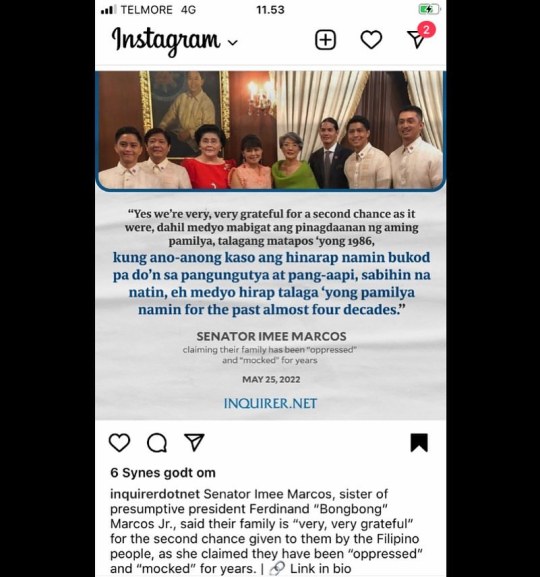
This is just another example of harem culture. Anyone historically proficient is aware that politicians simply safeguard the functions they’re elected to as an extension of the eunuch (castrated recruit (enslaved hostage) / recruited monk (non-castrated) practice previously reserved for Black men serving as administrators of the changes between the male and female segregated sectors of society. In Chinese history the equivalent persons were appointed in childhood with the pre-planned intention of later castrating and executing them. // What constant research Will show is that agricultural reproduction-processes of animals has been re-applied to humans and then combined with historical methods reserved for prison camps. In some African traditions women are ritually impregnated, as soon as menstruation initiates, as a means of retaining the woman on that specific area of land. Therefore, when the #metomovement addressed experiences of harassment within political organisations they were, in fact, describing the actions of their own government. // This is the effect of dogtraining, which applies equally to humans. “Adverse effects” Will be the results of these processes. If limbs are lost, so be it. https://www.instagram.com/p/Cd-hKRjN7o7/?igshid=NGJjMDIxMWI=
0 notes
Text
Chinese History and the Earth Kingdom: Long Feng vs Azula
Because I don’t have enough tags as it is, lol.
Props to atla-annotated.tumblr.com for coming up with this theory. I’m simply seeking to expand upon it. Seriously, read her post regarding the dark implications that come from directly paralleling Chinese history.
The theory regarding Long Feng is simple:
He’s a eunuch.
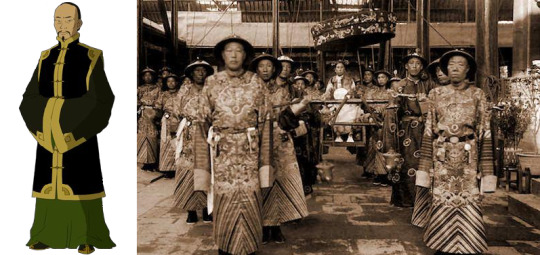
A eunuch is a male that has had his genitals removed to serve some specific social function. In Imperial China, the social function of the eunuchs was to act as live-in servants to the Emperor and his wives/concubines, as there was no risk of these men impregnating the women or fathering children that might form a dynasty to rival that of the sitting emperor’s.
During the Qing dynasty, which Ba Sing Se is inspired by, many poor young men voluntarily castrated themselves in hopes of a better life. According to Ancient History Encyclopedia:
Eunuchs, with their special access to the Inner Court (Neiting), where no ordinary officials were permitted, could be especially prominent when the ruler was not yet an adult and they fully exploited the possibility of not only filtering out communications from ministers to the emperor and vice versa but also appointments so that very often ministers simply could not gain an audience with their ruler. Eunuchs ingratiated themselves with the emperor and were perhaps more compliant than high-minded and more principled scholar-officials, which made the emperor more likely to follow their advice.
Sound familiar? I point this out because, if the historical parallel holds true, Azula’s little “divine right to rule” speech ends up being about 100x more vicious and Game of Thrones-like than it already is:
“I can see your whole history in your eyes. You were born with nothing, so you've had to struggle, and connive, and claw your way to power. But true power, the divine right to rule, is something you're born with. The fact is, they don't know which one of us is going to be sitting on that throne, and which one is going to be bowing down...Don't flatter yourself! You were never even a player.”
Azula knows exactly the sacrifice that Long Feng had to make to obtain his power and she uses it as sole reason for why he can never achieve his goal of being Earth King. In front of all his men, she’s subtly lording his greatest trauma over him. And it destroys him.
It’s also fascinating because it’s actually the second time in the story where Azula uses her age and sex to her strategic advantage; the first time being her ability to disguise herself as a Kyoshi Warrior. Think about the context of the scene from Long Feng’s point of view: He’s clearly an older man with more than half of his life behind him. Even if he gets the throne, he will have no heirs and the Earth Kingdom will immediately fall into chaos the moment he dies. And he knows that. His men know that. Worst of all, this hyper competent female of royal birth knows.
Azula has barely begun her life and has many good childbearing years ahead of her. She can create an entire dynasty of legitimate, cut throat monarchs to rule the Earth Kingdom for the next hundred years. And she even flaunts it by making her face up to look like an adult woman as she takes her seat on the throne.
He was never even a player.
As Machiavellian as it is, you have to give credit to Azula. Who else could make being a teenage girl into such a power play?
2K notes
·
View notes
Note
Do you think the show depicted Ibrahim pasha identity crisis well or that’s just me? Because that’s probably was the case in real life he was never considered a true Muslim but just a covert plus some of his actions were against Islam like sculptures. 5 five minutes he goes “I am Ibrahim of parga the son of fisherman…” this was ridiculously repeated to show how he cannot accept himself as grand vizier or accept his new faith…
(Also were slaves back then forced to covert? Like did hurrem and kosem not do it willingly?)
ARITE so I've read this and thought damn that is a good point to discuss what a lovely community I'm so glad with how it evolved years after the show has ended might as well at least re-read w*kipedia since it's been ages for me, looked up Ibrahim and turns out he was never married to Hatice 💀 no evidence exists, they were married to two separate people and the historian who proposed Hatice as Ibrahim's spouse later disproved his own theory 💀💀 what identity crisis are we talking about IM having the crisis here somebody-
So shattering news aside, his "arc" was at least a nice inclusion to have. I keep repeating the same thing that the show's biggest downfall was the way the Turkish media runs its shows, aka 2 hour long episodes produced mere days before they air, where soon enough all plotlines that the scriptwriters scrambled to write were Suleyman lying unconscious, concubines assaulting each other and poison attempts. In comparison to this, the fact that earlier they stopped and considered what a slave could be going through mentally was Nice ye know, plus for people like me who are strangers to Islamic culture in general, the clashes were educational. Before the show pointed it out, I had no idea statues were a taboo or didn't fully register that they find tables weird, the more you know.
And how it connects with your questions about whether it was done well and whether slaves were forced to convert, I actually think there might a clash with the possible reality vs Ibrahim's identity crisis in the show. Obviously not true for everyone, but there are so many stories of people giving up their basic human rights for a chance to make the buck, never mind their birthplaces. That Chinese ambitious politician who willingly castrated himself in his adult years to become a eunuch and rule over China instead of the fail emperor, parents selling their children into slavery to escape poverty, the castratos or once again boys getting castrated to retain a certain opera voice. To us it's crazy, but to place ourselves into their minds and realise that a peepee can and will go if it's substituted by the WHOLE OF CHINA is a fascinating perspective on how thirsty some were for a better life, and how little their freedom and body parts mattered, and how the world was just built different huh. You see that you're about to enter the world of unreal power and riches, you schedule your Islam conversion appointment ASAP, but in case of Ibrahim-like slaves it was forced on arrival and by the time you're coherent enough to dwell on it you've been indoctrinated into the system, quite literally because otherwise how else did the Empire flourish on the backs of abducted slaves.
A lot of former slaves making it big in the Ottoman Empire couldn't care less about their birthplaces and why would they if there's nothing holding them there besides the memories of poorer times. Real Ibrahim moved his parents and siblings to the Empire to live with him, Greece or Albany who when the Empire is the place that made you who you are and gave you the life that you live. Even like,,, politically I'd say some people might dislike still being associated with their original place because it's a humiliation tactic, a reminder that "Haseki Hurrem Sultan" isn't a solely Ottoman-based political figure representing its interests and standing firmly on its ground, she's "Alexandra the Slavic slave" (to generalise) who is still connected to another place, might be interested in supporting it politically, and since she's from there it means she's not from here so begone not the real OG etc.
Once again not to say that some people didn’t think differently, which is explored in the show, but with how Ibrahim was portrayed anyway it somewhat doesn't really connect. His corruption arc seemed to run separately from his place of belonging, they attempted to make tables and statues a factor in his death early on, but ultimately it was his own political greed, so the identity crisis was kind of left hanging. Plus no idea if I will make a point here so don't take me seriously, but him suddenly drifting away from this world in one scene to then bask in what it gifts him in another kinda eh, kinda doesn't make much sense, but you know, still nice to explore the topic anyway. And with his inner monologue and how he's always the fisherman's son, imo a humbling-type of reminder for himself, he was afraid of being corrupted in his early days so his "low" origins were meant to be a little refresher. Until he forgor 💀 and mid-sentence re-framed it as a started from the bottom now we're here story, rip dude.
#magnificent century#muhteşem yüzyıl#hatice in 1536 like damn restn't in peace ibrahim good thing i wasnt married to this guy#500 years later:
13 notes
·
View notes
Text
thoughts on “she who became the sun” as an abc (contains spoilers)
hell yeah chinese representation!!! idk why but 2021 seems to be the year that a ton of ya books about chinese history/mythology are getting published (i say, writing this in 2022 lol). she who became the sun is one of those books, and boy does it deliver. it’s actually set in china, like a specific time period of china, not just a chinese inspired fantasy land. it’s specifically about the rise of the ming dynasty, which is the last dynasty ruled by han chinese people (and is sandwiched between two dynasties that are ruled by people who are not han chinese). there are a lot of little details about the mongol court that i didn’t know about, which was wonderful to learn. like i learned about chinese dynasties in ap world history, and a little bit in chinese school, but we don’t go into that much detail because ap world history is about the world (duh) and chinese school is about learning the chinese language. but i digress. she who became the sun is very clearly chinese and its presentation of chinese culture is accurate and familiar to chinese people. i really like this aspect of the book, where it is a fantasy novel but also feels real. like real life history.
other representation of the lgbtq+ kind: zhu is a woman passing as a man, and ouyang is a eunuch warrior. both struggle with gender dysphoria throughout the novel, and it is very well written. i am cis female, so i wouldn’t know how gender dysphoria would feel like exactly in that capacity, although i have questioned my own femineity at times. both zhu and ouyang are only barely qualified to be called a “man” in this context (zhu because they are biologically female and ouyang because he’s been castrated), and that really defines their perception of themself, which is well developed and pervasive throughout the whole book. zhu and ma xiuying’s relationship is also very well written. i’m not going to call it lesbian, because i don’t feel that the label represents their relationship accurately (you are free to call it whatever you wish. i just personally do not call it lesbian.), but they do respect each other and genuinely care for each other in a romantic sense, and i could see the development of such a relationship between them. ouyang and esen’s relationship is the foil to that, where their relationship is established and ends extremely painfully (both metaphorically and literally). ouyang sees who he could have been in esen, and that torments him throughout the entire book. it’s really painful to read, and that’s what makes it so good.
plot: so personally i think this was one of the weaker aspects of the book. the plot was somewhat confusing to me and i didn’t always follow what was happening. particularly the ending. however, it has also been several months since i read the book so i do not remember everything about the plot. i will just leave this here and maybe revisit this when i have a chance to reread the book.
other thoughts: i don’t like the pitch for this book. “mulan meets the song of achilles”. the mulan aspect may be descriptive of this book, but personally i don’t think the song of achilles is a very good descriptor of this book. mainly because the song of achilles is, at its core, a romance novel. it revolves around the story of achilles but from his lover’s point of view, and as such is heavily romanticized. there is nothing sentimental or romantic about she who became the sun. it may have the same type of language as tsoa, but the feelings it evokes are very different. she who became the sun revolves around the self. ouyang and zhu are foils of each other, who both struggle with how they present themself to society, how society views them, and how they really feel about themselves. it is raw, it is painful, it is not romantic. this book doesn’t romanticize gender dysphoria, which i appreciate. as such, the descriptor of the song of achilles does not feel right to me to use when describing this book. while both she who became the sun and the song of achilles have the “longing” aspect, patroclus’s longing is for something tangible (achilles) whereas zhu and ouyang’s longing is for something more abstract (zhu for greatness and ouyang for self acceptance).
final thoughts: would i reread? yes. would i read the sequel? yes.
10 notes
·
View notes
Text
me on a whim: what was that Kendall line “no fun being the last eunuch in the forbidden city” about?
Sun Yaoting was the last surviving imperial eunuch of Chinese history. He was castrated at the age of eight by his father with a single razor cut, mere months before the last emperor Pu Yi was deposed.
😱😱😱😱
5 notes
·
View notes
Text
Listening to a history podcast and it kind of boggles my mind that in multiple places in human history, like up until the early 20th century we had this category of people called eunuchs whose life’s purpose was often for jobs or punishment to get castrated and had various cultures, intimate lives, stories, and stereotypes surrounding the figure of a castrated guy. Like if I wasn’t already doing a big history project I’d definitely would do something about them since this category isn’t really well talked about in terms of sexuality and gender because it doesn’t fit well or really exist with modern notions, most eunuchs did not consent to be ones, but damn the last Italian eunuch castrato died in the 1920s in the Vatican with recordings of his singing and the last Chinese eunuch died in the 1990s it was so recent
2 notes
·
View notes
Note
hot take: circumcision is a degree of castration on a scale that progresses past european eunuchs (no testes) and onward, ending at chinese eunuchs (no external genitals).
by that standard so is shaving your balls
13 notes
·
View notes
Text
Moonlit Throne historical clarifications/references
i want to accurately represent the history from the joseon era, but sometimes for the sake of story/ease of accessibility, things had to be minorly changed. the following is a list of creative choices/changes i make in the writing of Moonlit Throne, as well as further information about the history/culture that i’ve found through my own research 💓 i hope this can also provide some more context for those interested. this list is to be updated as the series progresses so i always recommend you read the latest drabble before checking for more info here for risk of spoilers. please correct me if i get any info wrong!!
for even more information about the world, check out the tag #moonlit history!
last updated: after drabble 43!
new information for the latest drabble will be under the moon.
king gwanghae - as mentioned in the line “gwanghae flow” & in the rest of the MV, Daechwita was inspired by this historical king & the movie about him. Moonlit Throne is not inspired by any king. any event that is similar is purely coincidental!
topknot - various sources state that only married men were allowed to wear their hair up, though this is often not the case in popular korean media. even though Yoongi is unmarried, i chose to pay homage to the daechwita MV & give him a topknot throughout the series. *** same goes for the blonde hair color!
months - traditionally, they followed the lunar calendar in the Joseon era. but i thought that that would be a bit difficult to explain for modern audiences so i am choosing to use the months/modern equivalents of dates.
yoongi’s scar - i am aware that Scarlet Heart Ryeo depicts the facial scar as a reason that someone could not become king. i haven’t found much on this in the way of historical sources, so it’s not a factor in my series!
uinyeo - aka. reader’s mom, and eventually reader herself. at the time, it was believed that women could not be treated by male doctors due to the shame of showing a man their body, even in a medical context. this position was generally occupied by a woman that was ranked below middle-class & commoner (think merchants/fishermen/etc.) as it was not a very desireable role. reader’s mom, Eun-a, is the head uinyeo, which is why she is called “su-uinyeo-nim” by others.
***i haven’t found any information that says men couldn’t be treated by women due to the Confucius beliefs, so at least in this story, reader helps out the male physicians from time to time.
eunuch - eunuchs were impotent or castrated men (had all or part of their genitals removed) who worked within the palace walls, serving and attending the royal family. they had their own hierarchy, like head eunuch, etc. it was possible for eunuchs to marry & have families of their own.
***Eunuch Kim has a 🍆! it’s just his testicles that were removed.
yoongi’s name - technically kings use temple names that end in jo or jong instead of their given names, but i’m keeping it as Yoongi!!
age - it’s revealed in the march 1858 drabble that Yoongi is officially turning 10 years old that year, but this is in Korean age. his birth year is 1849, which would make him 9 years old in age as we know it internationally. Korean tradition dictates that people age up at the start of the new year (Jan 1), not on their actual birthday. traditionally, they also add an extra year as they consider the baby 1 year old at birth, not 0 years old. to do the math, reader is two years older than him, which would make her born in 1847 & turning 12 that year!
*** the average life expectancy around that time was ~35-40, so their understanding of a teenager would be very different than ours, at least in terms of maturity. thus, even though the main characters are relatively young by today’s standards, i’ve written them to come off as older. UPDATED INFO: it seems court ladies could live up to rather elderly ages, even up to 70, so i’m not sure if the earlier statistic was just mainly for men.
birthdays - i couldn’t find any information about whether they celebrated the actual day of birth as well back then, only about 100 day milestones, etc. but it is part of Korean culture to celebrate the birthday in modern times, so i kept it in.
jeonha - similar to mama, this is how you refer to the king as an equivalent to “Your Majesty”. wangseja-jeonha is the full title for the crown prince. usually people just call him seja-jeonha.
women’s rights - how much freedom you have kind of depends on what rank you are. most of the upper court/noble ladies (yangban) are born & raised within the palace. they were very, very rarely allowed to leave (& if they were married off, then they would have to leave with like guards/people with them). it’s unfortunate but they were treated like property, passed off from father -> husband. from what i can gather, the lower ranked women (like the uinyeo) had a bit more liberty about going into town (or at least ive seen in media), mostly bc no one cared about them.... sad truth but truth nonetheless.
king’s authority - even though the king is the ruler of the entire land, he doesn’t have absolute authority over everything. generally kings in the joseon era had to listen to the advice of the court officials if they thought he was making the wrong choice.
Minister Choi’s execution - so actually there were several types of executions for people of different ranks. someone of Minister Choi’s status likely would have been given a less gruesome death via. poison (sasa or 사사). but i’m keeping it as a beheading to pay homage to the daechwita MV!
***i also came across an article that said only royal blood could be spilled on the palace grounds so i’m not 100% sure where the public execution square was located, only that there was one & it was separate from the palace. also a lot of dramas seem to ignore this rule, so i’m not sure.
perfume - this existed back then! along with cosmetics. they were a luxury item for mostly the upper class, but they definitely existed.
Queen Jeonghui’s birthday - fun fact! i borrowed this real life queen’s name first, for drabble 3. then i found out, it just so happens that her real birthday falls in November as well. it was a total coincidence haha.
OC’s outfit/hairstyle - this is what she would have worn!
palace - the layout of the series setting is loosely based off Gyeongbokgung Palace! if you look at the map, i’ve set the private gardens at #24 (though the position of the island is different than how it looks in the map. it’s instead from the right side going towards the left), Yoongi’s private residence is #25. reader is moved into #23. #26-28 are libraries, which includes the crown prince’s private library.
*** also the palace is much bigger than you might imagine so to get anywhere takes some time & a bit of walking!
jipgyeongdang (집경당) - #22 on the map. along with #23 (below), were traditionally houses for concubines & palace maids before Yoongi moved them.
hamhwadang (함화당) - #23 on the map. where reader lives post December 1868.
sanggung - the highest rank available for women who served the palace/royal family. a woman could become a “favored sanggung” if she slept with the king, but not a proper concubine. normally from the “commoner” class.
sangmin - “commoner” class. made up about 80% of joseon’s people. were the farmers, fishermen, laborers, etc. these were the people that paid taxes and were ruled over by the nobles!
cheonmin - the rank below commoner, described in English as “vulgar commoner.” the upper classes considered these people “unclean.” among their numbers were butchers, sex workers, performers, shoemakers, and yes, uinyeo. they were normally given little to no respect at all within society.
concubine - women that had the honor of sleeping with the king. concubines had their own ranks within them as the king usually had many (think around a dozen). more info.
town - from what i can gather, directly outside of the palace is a small town. if you think of the Daechwita MV, it’s like the town that Yoongi walks through when he has black hair. this is where mostly people of the middle/lower class, like sangmin & those below that, live.
chuseok - Korean harvest festival! it means “autumn evening with the brightest moon”. it’s usually celebrated on the 15th day of the eighth month in the lunar calendar. that would put it anywhere around sept 9-oct 2 in our modern calendar depending on the year!
yangban - these are the “ruling class” or gentry of the joseon era. generally means their families own land, are somewhat (or very) wealthy, and they are well-educated. (think Mr. Darcy, for a British equivalent)
why does no one recognize the prince in town? - with a lack of access to pictures & internet, it was common for the normal citizens of the country to not know what their monarchs looked like. generally to identify people & rank, they had to rely on appearance. gold was a color only reserved for royalty, so only the king & his sons could wear the royal robes with gold embroidery. once Yoongi takes off those robes, it’d be hard to identify him from among regular yangban!
jeon - these are bits of shrimp/vegetables/fish/other small things that are deep fried in egg batter!
nokdujeon - this is like a small, savory pancake made with, you guessed it, mung beans!
Chun-ja calling Eunuch Kim “Kim-nim” - look. i’ll be straight with you i have no idea how a commoner would refer to a eunuch. i’m flip-flopping between his title (which i also cannot figure out bc idk which of the 18 political ranks he would be, but not for lack of trying y’all T_T) & his name with the respectful -nim. so just to be safe, i’m going with it.
***i also am not 100% on this, but i believe Eunuchs rank higher than commoners because they work in the palace? which is why Eunuch Kim uses “-ssi” for her.
hangul & hanja - so the Korean alphabet as we know it is called hangul, and it was invented in 1443. in the past, they used to use hanja, Chinese characters, to write documents.
female literacy rate - as related to above, it was rare for women to be able to read/write even up until the late 19th century. they weren’t allowed to learn hanja at all & only around 4% could learn hangul. of those 4%, it was mostly noble women, who received good education to be better wives.
***books were then thus read aloud by those literate to crowds, so people could still enjoy stories.
face - the concept of “face” is very much rooted in Asian culture. in Korea, it’s called chemyon, & is basically related to your reputation + how others see you. you can lose, build, or gain face through your actions or what rumors of you spread. for example, if parents have children with bad grades, they + the child lose face. people should strive to do things to build their family’s honor & face up. i’ve experienced firsthand how people go to sometimes extreme lengths to “save face” as the term goes. basically, if you’re going to do something shameful, it’s better to do it where no one can see. (this concept isn’t going to have a huge influence in the series, at least not so far & i use it rather lightheartedly in October 1865 but i just thought that it’s really interesting + important to know about Asian culture!)
French expedition to Korea (Byeong-in yangyo) - in October 1866, the second French empire tried to invade Korea (or Joseon as it was called at the time) because the king at the time executed seven French missionaries. after several months of fighting, Korea won with only four soldiers killed & 3 wounded (compared to France: 3 killed, 35 wounded). Joseon was able to stay relatively isolated from all the other countries, continuing the practice of isolationism.
gossip - i couldn’t find any laws prohibiting people from talking about court going-ons/battles, though i would assume that it’s punishable if you’re doing it to talk badly about the king. but even if there were laws in place, word gets around, as word tends to do. therefore, i’ve given Eunuch Kim a bit more freedom in his letters.
royal funerals - it could actually take up to 5 months for the coffin to begin its journey to the resting tomb, but i’ve expedited the timeline for plot purposes!
coronations - these actually weren’t super common in Korea or Asia in general, but it did happen once in the 1700s for King Yeongjo. i’m using that as inspiration for Yoongi’s crowning.
*** also i couldn’t find info on the exact wording that King Yeongjo used when he announced his succession to his deceased brother’s body so... i took some creative license there.
gama - how yangban & up women travelled, carried by their servants. here’s a visual!
the royal engagement - actually, Beom-su would not have lived within the palace walls. she would have lived in a detached palace that was further away from the main palace, and there would be a whole procession where the king goes to her during their wedding rites. however, i’ve seen several dramas have the bride-to-be hang around a lot, which seems to be true because she would have had to learn the customs of the palace, so i’m not sure how much she would have been around realistically. i’ve just chosen not to address it, like the dramas do.
Beom-su’s name - i chose this name for her because of one of the possible hanja for beom: “犯”, which i would pair with the hanja “秀” for su. her name would basically mean excellent invasion, which i thought was a bit cruel, slightly humorous, & overall fitting. it is normally a masculine name though!
why are Beom-su’s father’s actions such a scandal? - so all the unmarried women living/working in the palace were considered the king’s property. he could sleep with them if he wanted to, but essentially they belonged to him. by laying hands on the maid, the minister committed a double sin because he not only was he assaulting someone, but he was infringing upon the king’s territory.
civil service exam (gwageo) - this is an exam issued every 3 years that any man, commoner rank & above, could take in order to enter into civil service. it’s what Jimin takes to enter into the court! i’m not sure what month these were held or if it was just at the king’s discretion (could not find much info)
more on eunuch kim & the re-marriage process
royal tombs - these were often quite far away from the actual palace but looking on maps, i found that there were a few tombs rather close to the palace that people could have conceivably travelled to within a day, over several long hours on horseback!
on natural disasters - yes, in history, natural disasters like floods/earthquakes/eclipses were said to be the king’s fault because he wasn’t a good enough ruler! things like this could seriously derail the people’s trust in the king and was a big cause of concern.
on Queen Jeonghui being in court meetings - i couldn’t find actual evidence that said the queen couldn’t be at these daily meetings between officials. in fact, the real life Empress Myeongseong in the ~1870s was pretty involved in politics and was quite interested in matters of law, etc. so, i’ve decided to allow Jeonghui to be present and address the ministers alongside Yoongi!
Chunaengjeon - i kind of explain more about this already in the drabble itself but if you’re curious, it’s the only solo court dance in the Joseon era and the highlight of the dance is a moment where the dancer mimics a bird perched on a flower and smiles :’) i thought it was fitting for these two. here’s a video of a performance that i used as reference!
janae - there were quite a few different terms for couples to call each other during this time. “janae” was meant to represent wife and is kind of their equivalent to our... “honey”? it was mostly used among the commoners/lower classes to convey affection and closeness. (aka eunuch kim continues to be the cutest)
on adopting a child as a eunuch - the readings i found say that eunuch kim’s children must be eunuchs themselves if he adopts them directly, but they don’t mention anything about this particular case of a eunuch marrying a widow, aka the child is not directly adopted by Eunuch Kim himself. so Han-jae will not be a eunuch when he grows up!
american invasion of korea (shinmiyangyo) - this is a true historical event, as i’ve mentioned in my author’s note for “June 1871.” Americans repeatedly violated Korean soveriegnty and invaded their land, resulting in many, many deaths for the Korean side. they were hoping this destruction would force Korea to accept the trade treaty. Korea did not, and eventually were able to chase the Americans out of their land a month later. the wikipedia page goes into greater detail if you’re interested, and is a quick overview of the situation.
seong-min’s living situation - as i’ve mentioned earlier with the whole Beom-su situation, i’ve chosen to not use the detached palace again for this engagement as dramas tend to do.
the wedding ceremony - similar to my reasoning about the detached palace, i’ve chosen to focus on only a few parts of the marriage rites while only briefly mentioning the rest. why? well, while i would LOVE to explain all the details and intricacies of such an incredible process, i feel like that would take a lot away from the heart of the story and be distracting, especially at such a critical stage. so i’ve explained what i can, and given brief overviews where i am able. ofc i adjusted the parading ceremony because of the change of the detached palace custom. if you’d like an easy-to-read source on the whole process, please check out this link! basically the MLT chapter depicts a tweaked vers of steps 5 and 6. 1-3 happened behind the scenes, and i mentioned #4 in the “summer 1871″ drabble.
chungin - our equivalent of “white collar” workers, or the upper-middle class. this rank was made up of low-level bureaucrats, accountants, physicians, etc. some royal servants would also be part of this rank because they’re allowed to enter the palace. there is an exam (chapkwa) to become this rank!
conception dreams (taemong) - as uinyeo-nim explains in the drabble, these dreams were often seen as omens of impending pregnancy. depending on what you see in your dream, there are different interpretations. possible symbols are animals, fruits, elements of nature, children, and jewels. eg. if you dreamed of fruits, it was often considered to be a sign of having a baby girl.
other conception myths - i know from my own experience that Asians often have a lot of superstitions regarding conception and pregnancy and medical things in general. however, i couldn’t find any specific conception myths for the time period in question (most of my research only uncovered superstitions for after you’re already pregnant), so i’ve taken some creative license here, using the conception dreams and current beliefs as inspiration!

on Queen Jeonghui calling oc “dear” - since I prefer not to use Y/N, ___, etc. for reader’s name and just generally avoid mentioning it, it’s nearly impossible for me to convey the tone with which Queen Jeonghui would’ve been calling OC in this chapter. in Korean, she would be saying “[name]-yah/ah” depending on the ending syllable of the name. adding that suffix to the end of a name conveys closeness and intimacy between people. I’ve chosen to substitute it for “dear” to make things sound more natural in English. it’s not an exact match, but it’ll have to do!
230 notes
·
View notes
Note
You recently (at least according to my thmblr dash and since i have been following you) started posting gufs and pics of a new drama (to me) the firmament of the pleiades. What is it about i have never heard of it before?
The Firmament of the Pleiades is a Chinese/Japanese drama.
In late Qing dynasty China, Chun Er, an impoverished country youth, makes a living picking up manure in order to take care of his sickly adoptive mother Lian Zi and younger sister Ling Er. In a desperate act, Chun Er performs self-castration to obtain reward money from the government to cure his mother's illness. Liang Wen Xiu, the son of a wealthy landowner, discovers that Lian Zi is actually his biological mother, and is extremely touched by Chun Er's sacrifice. He and Chun Er head to The Forbidden City with Ling Er in hopes for a better future. Wen Xiu becomes the top scorer on the imperial exams and is rewarded with an important position in the Qing court while Chun Er would become a top eunuch greatly favored by Empress Dowager Ci Xi. Their fates are intertwined with those of Ci Xi and her puppet emperor Guang Xu as they become embroiled in the political intrigue of a tumultuous era.
You used to be able to watch it on Amazon but it’s temporarily unavailable right now. It might become available later?
20 notes
·
View notes
Note
If a lord or prince were to prevent his bastard son from being able to inherit, say for example Prince Rhaegar having Jon Snow castrated or assassinated, would it still violate the laws of kinslaying?
If you assassinate them, it’s still kinslaying. That’s one of the great benefits of the Night’s Watch from a social perspective, exiling rebellious family members without invoking godly curses. As far as castration, we don’t really see too many examples within the story that aren’t related to the Unsullied or other eunuchs, and Westeros doesn’t really follow the tradition of the court eunuch more common to the Byzantine Empire or to Chinese and other eastern courts.
Thanks for the question, Anon.
SomethingLikeALawyer, Hand of the King
4 notes
·
View notes